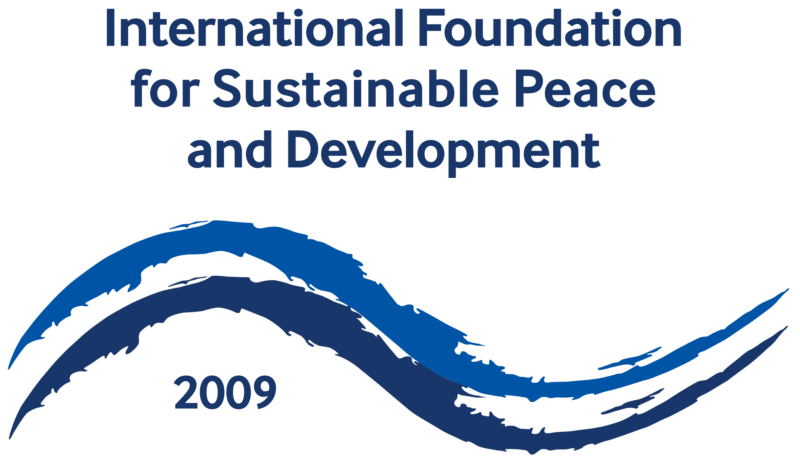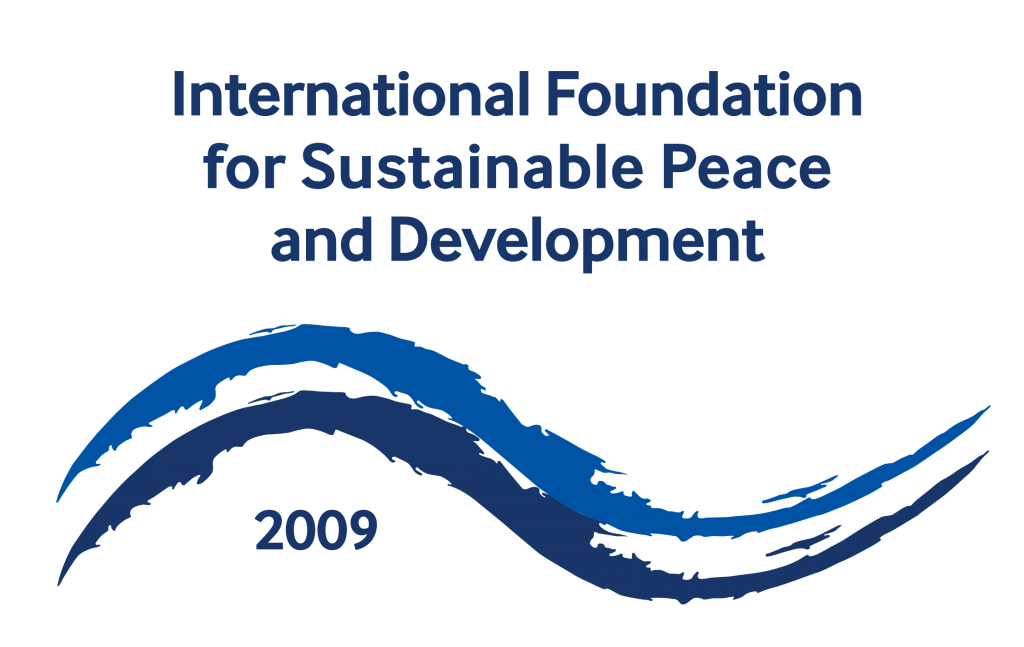1.) Western Balkans: Peace and development through new jobs for youth
According to some studies and surveys, the provision of good work is seen as the most important social value, even more important than family, democracy, freedom, etc. Studies show that unemployment among young adults is three times higher than among the adults (25 and older), and the global unemployment rate is rising year by year. During economic crises, the unemployment rate among young people increases many-fold.
From this point of view, more and more young people in the world are considered hopeless, in distress and unhappy, because they do not have a job.
This problem is also relevant for the youth of the Western Balkans. In this region, where memories of wars of the past are still fresh and nationalist slogans are used from time to time, young people also suffer from a shortage of jobs.
It is a common knowledge that it is easy to manipulate with people who are poor, dissatisfied with their life and do not have a job and a perspective. On the contrary, it is rather difficult to manipulate with the national issues in the countries with strong economy. When young people have a job, their abilities and opportunities can be directed to positive activities, cooperation and creation, which ultimately contributes to peace and security.
In this regard, International Foundation for Sustainable Peace and Development (IFSPD) proposes the implementation of the project, which provides for the employment of youth. Within the framework of the project a) the regions that are most in need of creating new jobs in the Western Balkans (in particular, with a diverse ethnic composition of the population) will be studied and identified, b) the opportunities that exist in these regions for entrepreneurial activity will be explored, c) the formulated proposals (for example, to create a hall for processing livestock products, etc.) will be submitted to the government and the business sector for implementation.
2.) Multiculturalism as a necessary element for the cultural component of the project One Belt, One Road
The Chinese initiative One Belt, One Road was first announced in 2013 by President Xi Jinping during his trip to Kazakhstan and Indonesia. In short, it is aimed at reviving the Silk Road, that is connecting China with Europe through the development or improvement of regional infrastructure projects.
The One Belt, One Road initiative is global in nature, and it has received the support of many states in the world. Within the framework of the initiative, there are 5 main pillars: the political component, ways of communication, barrier-free trade, capital flow and mutual cultural understanding. To support the initiative, the Chinese government has set up two financial institutions: Asian Infrastructure Investment Bank (100 billion) and the Silk Road Fund (40 billion investments).
Multicultural values have a very positive impact on strengthening the atmosphere of mutual understanding, trust and mutual respect, which ultimately contributes to stability, security and peace. And these factors are the most important for the successful implementation of economic projects, including the One Belt, One Road initiative.
From this point of view, International Foundation for Sustainable Peace and Development (IFSPD) will implement a project aimed at exploring ways to promote the ideas of multiculturalism in regions and countries along infrastructure projects.
3.) Establishing a partnership with the Silk Road Think-tank Networks (SILKS)
This initiative was established on 28 October 2015 in Madrid by 43 members. The initiative to create this platform belongs to Development Research Center of the State Council of China and the Center for International Relations and Sustainable Development (CIRSD/ Serbia). It includes 54 members and partners. The main goal of its creation is to study issues related to the Chinese initiative “One Belt, One Road”, which is already described as a project of a century.
It is proposed that the International Foundation for Sustainable Peace and Development shall establish close ties and will participate in the activities of this platform.
4.) Abuse of the principle of self-determination of peoples and the reaction of the international community
International law clearly delineates the limits of the realization of the principle of self-determination of peoples. There are a number of international documents, for example, the Helsinki Final Act of the OSCE of 1975, which clearly states that this principle will be implemented in accordance with the principle of territorial integrity of states. Unfortunately, despite the above, recently there has been an increase in separatist trends in the world. At the same time, often separatist movements appealing to such an important principle of international law as self-determination of peoples are trying to give legitimacy to their illegal actions and endanger peace and security around the globe. The International Foundation for Sustainable Peace and Development intends to systematize the most well-known cases when the international community opposed attempts to abuse this principle and to explore ways of effectively preventing the abuse of this principle in the future.
5.) Engaging the civil sector in the implementation of the Agenda for Sustainable Development until 2030
On 25 September 2013, within the framework of the UN the states adopted the Agenda for Sustainable Development until 2030 i.e. 17 sustainable development goals and 169 related tasks, which are complex and indivisible. Never before have had the world leaders committed themselves to take joint actions and efforts to implement such a broad and universal strategic program. The document contains a number of goals aimed at eradicating poverty, preserving the resources of the planet and ensuring well-being for all. Each of the 17 Goals contains a set of indicators that must be achieved within 15 years. The achievement of the Sustainable Development Goals requires the joint efforts of governments, the private sector, civil society and the inhabitants of the Earth. The International Foundation for Sustainable Peace and Development, on the basis of its statutory goals, as well as being aware of its goals, will implement a project aimed at acquainting the various NGOs in the countries represented in IFSPD with this document and exploring, together with these organizations, sector in their implementation.
6.) Analysis of the legislation of the countries represented in IFSPD for supporting and promoting energy supply and renewable energy technologies.
Currently, developed countries of Europe are accelerating the development of the use and application of renewable energy sources (RES). This circumstance is dictated by the need to reduce dependence on non-renewable energy sources, as well as environmental protection, that is, ensuring sustainable development of countries while preserving natural resources and a healthy environment for future generations. For example, Sweden continues to reform the tax legislation in the electricity sector, returning to RES a preferential tax regime. By 2040, the government of this country intends to achieve 100% production of electricity from renewable energy sources. In developing countries, the situation is different, not only due to a lack of investment but also due to lack of effective incentives for the use of such technologies. Studies show that the legislative and regulatory framework in countries plays a very important role in supporting the use of renewable energy sources and energy saving systems. Within the framework of this project, the International Foundation for Sustainable Peace and Development plans to analyze the legislation of the states represented in IFSPD and determine the extent to which existing regulations, mechanisms, and rules encourage investments, development, and use of energy saving technologies and the use of renewable energy sources in everyday life and industry. Based on the findings, the relevant best practices in this area of developed countries will also be presented to the countries in need.
7.) Sustainable transport links as the engine of economic development in Eurasia
In the modern world, safe, reliable and affordable transport and transit corridors play an important role in the effective movement of goods and people in order to support sustainable economic growth, improve public welfare and expand international cooperation and trade between the countries of Eurasia. At the same time, there is no doubt that there is the special need of developing countries, and landlocked countries, that are also represented in IFSPD, to create and develop efficient transit transport systems linking them to international markets.
At the moment, a number of projects on the creation or optimization of transport corridors are being implemented in the Eurasian space. These projects are well known, and among them, the most significant one is the Chinese initiative One Belt, One Road.
As part of this study, the International Foundation for Sustainable Peace and Development will analyze the existing and emerging transport corridors in Eurasia, the strengths and weaknesses of these corridors’ functioning, their opportunities for countries without access to the sea. IFSPD will also develop proposals whose adoption will ensure the effective use of such countries of transport corridors for their development.
8.) Internally displaced persons (IDPs) and regional intergovernmental organizations
Today, the problem of displacement is more widespread than ever in the world. As of December 2013, 33.3 million people worldwide were internally displaced because of the conflict and violence. In addition, only in 2013, as a result of disasters, in this situation were about 22.4 million people. In connection with the new and current crises in 2014-2017, these indicators have increased and reached the highest level since the Second World War. The problems of IDPs should be an integral part of the development agenda for the period after 2015 and the commitments it provides to ensure a decent life for all and leave no one behind. At the same time, this issue should not remain only on the shoulders of the UN. Other international organizations should also provide the necessary attention to the issue of IDPs. In the framework of this study, the International Foundation for Sustainable Peace and Development will analyze the attitude of international organizations such as the Council of Europe, the OSCE, the BSEC, etc. towards the IDPs and, based on the data received, IFSPD will develop proposals aimed at optimizing the activities of such organizations in terms of assistance to the settlement of the IDP problem.
The results of the research will be published.
9.) The Development of Information Technology and its influence on Sustainable Development
The goals of Sustainable Development, adopted in 2013 within the UN, differ from other similar documents in the fact that they are aimed not at developing countries, as it was the case with the Millennium Development Goals, but for the future of the human generation as a whole.
What place can take such phenomena as mobile Internet, the processing and storage of a large amount of information, and other innovations in meeting the sustainable development goals defined by the UN?
Will they create opportunities for faster development or will they be used to create additional problems for mankind?
In the framework of this study, the experts of the International Foundation for Sustainable Peace and Development will try to determine how best to use information technologies and digitalization to achieve the goals defined in the document entitled the 2030 Agenda for Sustainable Development.
10.) Eastern Partnership: the path from Prague to the 10th anniversary
The Eastern Partnership is a special dimension of the European Neighborhood Policy of the EU, established in 2009 in Prague. Since the first meeting in Prague in the region of its concentration, there have been many changes, including dramatic events in Ukraine in 2013-14.
In the framework of this study, the experts of the International Foundation for Sustainable Peace and Development will analyze the achievements of the Eastern Partnership, try to understand the challenges it faces and formulate concrete proposals for EU institutions in overcoming the existing difficulties associated with its implementation.

